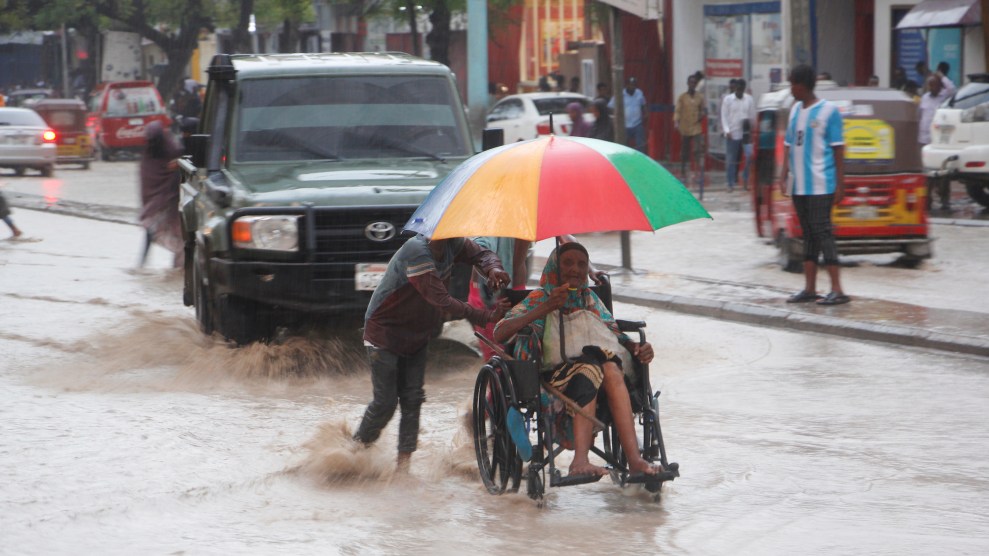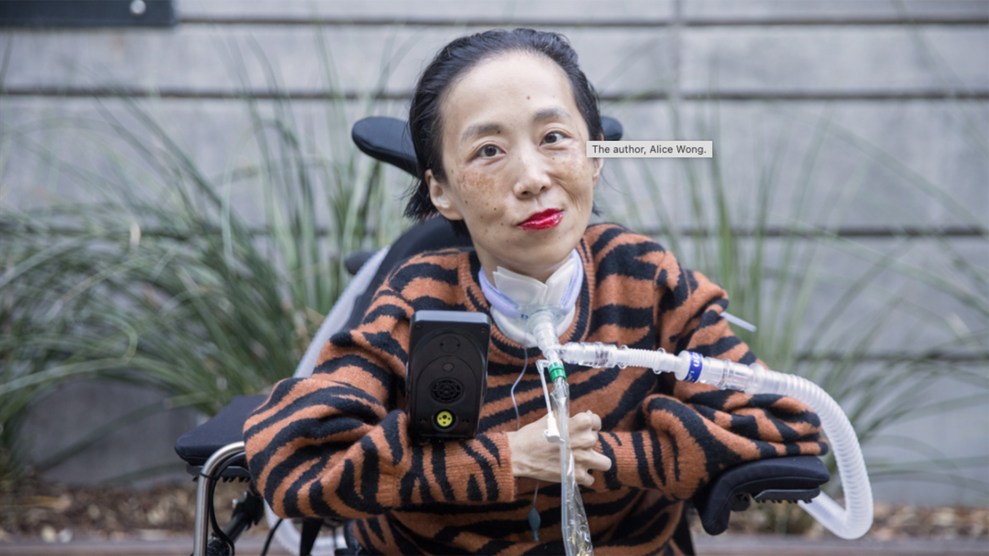
Flooding in Mogadishu, SomaliaFarah Abdi Warsameh/AP
On Friday, the United Nations held a panel on issues impacting the disabled community—ahead of its International Day of People with Disabilities, which falls on December 3. One increasingly urgent topic of discussion: Climate change.
“The specific long-term consequences of climate change on persons with disabilities are poorly understood and usually overlooked,” said a moderator with the United Nations Youth Office.
The fight to get the UN to recognize the impact of climate change on disabled people has been led by disability advocates, some of whom spoke at last year’s COP27 climate summit about how disabled people are harmed by heat waves, floods, and other extreme weather events. When infrastructure fails after climate events, disabled people face challenges—like struggles to get medication, access health care, and safely leave their homes. According to the World Health Organization, around one in six people lives with a disability.
People with disabilities “are continually being left behind and the consequences are devastating,” said Marcie Roth, executive director of the World Institute on Disability, who lives with Long Covid, at the panel.
Many communities have failed to implement disability-inclusive climate disaster plans, Roth said, which leads to disproportionate harms: “For people with disabilities who are less apparent like me, the impact of disasters and the options for maintaining health, safety and independence are often ignored.”
The UN Human Rights Council did pass a resolution in 2019 calling for member states to enact climate policies that address the needs of disabled people. Still, many countries haven’t followed through. A 2022 report from McGill University and the International Disability Alliance found that only 45 state signatories to the Paris Agreement, the UN’s landmark 2015 climate change treaty, even mentioned disabled people in their climate policies.


















